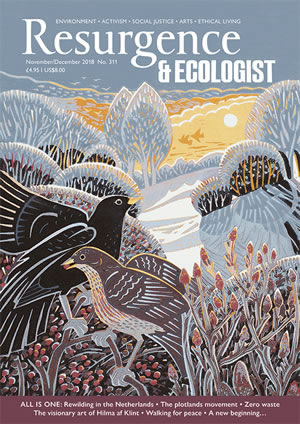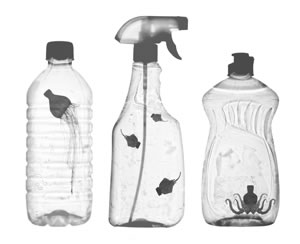This short and highly readable book is well timed to capture the wave of public interest and concern over plastic pollution in our seas and oceans that has followed the BBC’s Blue Planet series.
The premise of the book is that ocean plastic pollution is a truly terrible thing and that to combat it we all need to cut right back on plastic – or, better still, get it out of our lives altogether. And in line with the KISS principle (keep it simple, stupid), author Martin Dorey has assembled a series of two-minute solutions (#2minutesolution) that set out simple things we can do.
Among the solutions: don’t buy water in plastic bottles; instead, just have your own refillable bottle and fill it from the tap. Avoid cotton-bud sticks with plastic shafts like the plague – along with plastic cutlery and drinking straws, disposable razors and lighters, plastic bags, and anything packaged in plastic. Not forgetting wet wipes (almost all of which are made of plastic fibres) and synthetic clothes, which can shed millions of tiny fibres every time they are washed, to make their way through the sewerage system into the sea.
But it’s not all avoiding and doing without. You can also lobby your MP to push the government to stronger and more effective action (in a #2minuteemail perhaps), do a #2minutelitterpick in your neighbourhood, or join in a #2minutebeachclean. And that’s something we can all find time to do, argues Dorey, as “two minutes is no time at all.”
This is all good, but where to start? How about last night when, out tidying up a local playing field, I stuffed a carrier bag full with scraps for landfill, and a bin liner with cans and bottles for recycling? It was the work, not of two minutes, but of over an hour; and in a few weeks’ time it will need doing all over again. And what good is a #2minutebeachclean if it takes an hour to drive to that beach? And what about all the fuel you burned getting there? Of course if everyone were to spend two minutes a day, or maybe better still an hour a month, cleaning up their local environment, the litter problem would be well and truly whacked. But sadly there’s little sign of that happening, at least where I live.
Ocean plastic is a terrible thing, but it’s not the only environmental bad. And using plastic can reduce environmental damage caused by other materials and activities. For example, if we simply replace plastic packaging with cardboard and paper, that’s going to drive the mass conversion of natural forests into plantations to supply all the extra wood fibre we would need, with huge CO2 emissions, wildlife losses and hydrological disruption.
Stop using synthetic clothing, and we will instantly create massive extra demand for cotton, which by most environmental measures is far worse than polyester or nylon. For example, it takes over 20,000 litres of water to grow a kilogram of cotton – against 17 litres for a kilogram of polyester – together with intense applications of pesticide and fertiliser. With typical yields of about 500 kilograms of cotton per hectare, the world’s 25-million-tonne-a-year cotton crop is already taking up some 50 million hectares – 3–4% of the world’s 1.4 billion hectares of arable land. Producing cotton also emits about twice as much CO2 per kilo as producing polyester.
Of course, most of the advice in this book is sound. Yes, let’s ban the worst examples of single-use plastic, from polyester wet wipes to plastic straws! Let’s tax plastic packaging, and put deposits on plastic bottles! And if it’s the oceans we’re truly worried about, let’s have more (regularly emptied) bins along our rivers, streams and beaches, and litter traps in rivers and estuaries!
But the truth is that ‘no more plastic’ is an unattainable ambition and in many ways an undesirable one, at least for now. We must be guided by a broader, longer-term vision of the sustainable future we need to create, one that accounts for all environmental costs and impacts, not just the most fashionable ones. That will involve drastically reduced material consumption across the board, and a planned transition to a zero-waste society. Bring this off, and the plastic problem will have solved itself.
No. More. Plastic: What You Can Do to Make a Difference is available in the Resurgence online shop: www.resurgence.org/shop/no-more-plastic-pr-152.html








